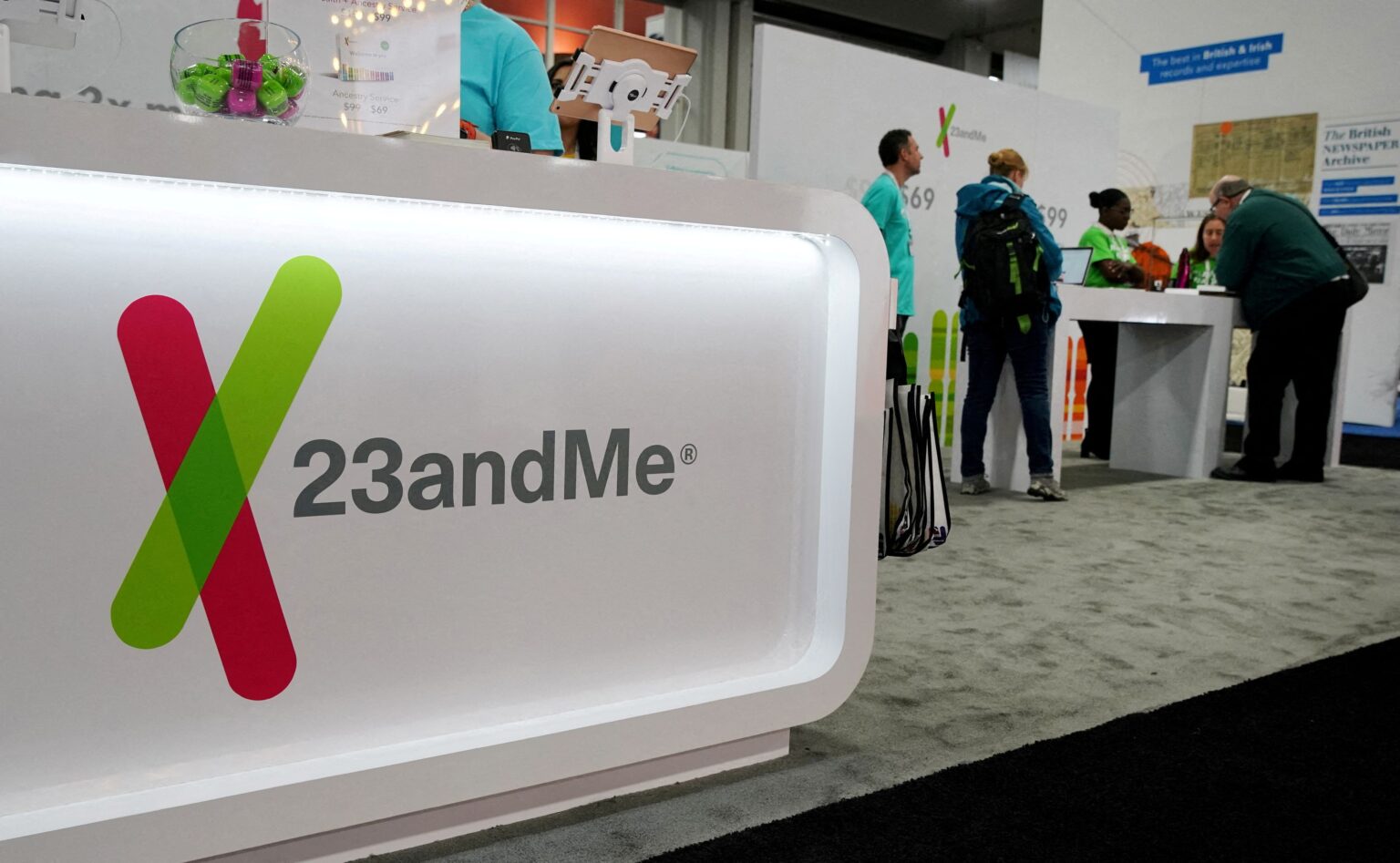Legal Battle Over 23andMe’s Genetic Data Continues Amid Bankruptcy Proceedings
The future of genetic information belonging to millions of 23andMe users remains uncertain as the biotech company’s bankruptcy case unfolds. The company is currently seeking judicial approval to entertain a new bid from its co-founder, Anne Wojcicki, along with undisclosed financial supporters, after initially accepting an offer from pharmaceutical giant Regeneron Pharmaceuticals.
Contested Bids and the Question of Auction Closure
Wojcicki’s nonprofit research organization has been urging 23andMe to reopen the bidding process, claiming that the initial auction concluded prematurely. The institute argues that there are competing offers that surpass Regeneron’s recent $256 million cash bid, which was accepted earlier. This dispute has placed 23andMe in a difficult position, with the company warning of potential legal challenges if the auction is not revisited to allow for additional final offers from Wojcicki’s group and Regeneron.
Proposed Resolution and Potential Outcomes
In an effort to resolve the impasse, 23andMe has proposed a compromise: permit Wojcicki’s TTAM Research Institute to submit a final bid, while also giving Regeneron the chance to respond with a counteroffer. If TTAM’s bid is successful, the company has agreed to pay Regeneron a breakup fee of $10 million. This approach aims to balance the interests of all parties involved and potentially maximize the value of the company’s assets.
Market Reactions and Judicial Support
According to reports from The Wall Street Journal, TTAM has already submitted a bid of $305 million during a recent bankruptcy hearing, prompting a judge to indicate support for reopening the auction process. This move suggests a willingness among the court to explore additional bids before finalizing the sale.
Regeneron’s Perspective and Concerns
Regeneron has expressed concerns about the fairness of the current process, asserting that its participation significantly accelerated the bidding activity. The pharmaceutical company noted that the auction started at $50 million and quickly escalated to $256 million, implying that Regeneron’s involvement was instrumental in driving up the price. The company also stated that it would not have engaged in the auction had it known that its victory might be challenged by Wojcicki’s group through a subsequent takeover attempt.
Wojcicki’s Group and the Future of the Bidding Process
Despite Regeneron’s willingness to consider the proposed compromise, Wojcicki’s TTAM and her team have opposed it, advocating instead for an open bidding process that allows for multiple rounds of offers rather than just final bids. As of now, the dispute remains unresolved, with both sides awaiting further court decisions.
Privacy and Ethical Concerns Surrounding 23andMe
The ongoing bankruptcy has reignited debates over the privacy of genetic data collected from over 15 million customers. These individuals submitted saliva samples to learn about their ancestry and health insights, raising questions about how their sensitive information will be handled amid the sale. Once valued at approximately $6 billion in late 2021, 23andMe aimed to leverage its genetic database for medical research and drug development. However, these ambitions proved difficult to sustain, leading to financial struggles and bankruptcy filings in March.
Bankruptcy and Asset Valuation
During the bankruptcy proceedings, a special committee highlighted the success of the sale process, noting that Regeneron’s $256 million bid came shortly after Wojcicki’s initial $40 million offer was rejected. The final auction saw the price escalate to nearly $300 million, with Regeneron and Wojcicki’s group emerging as the top contenders, according to sources familiar with the process. TTAM’s recent filings indicate that 23andMe’s management believed the company lacked the financial capacity to surpass bids exceeding $250 million.
Future Plans and Strategic Goals
Regeneron has announced its intention to acquire most of 23andMe’s assets, excluding its telehealth division, and to continue providing direct-to-consumer DNA testing services. The company plans to utilize the genetic data to accelerate its research into genetic-based medicines, aiming to develop innovative treatments for various health conditions. This strategic move underscores the growing importance of genetic data in pharmaceutical research and personalized medicine.

